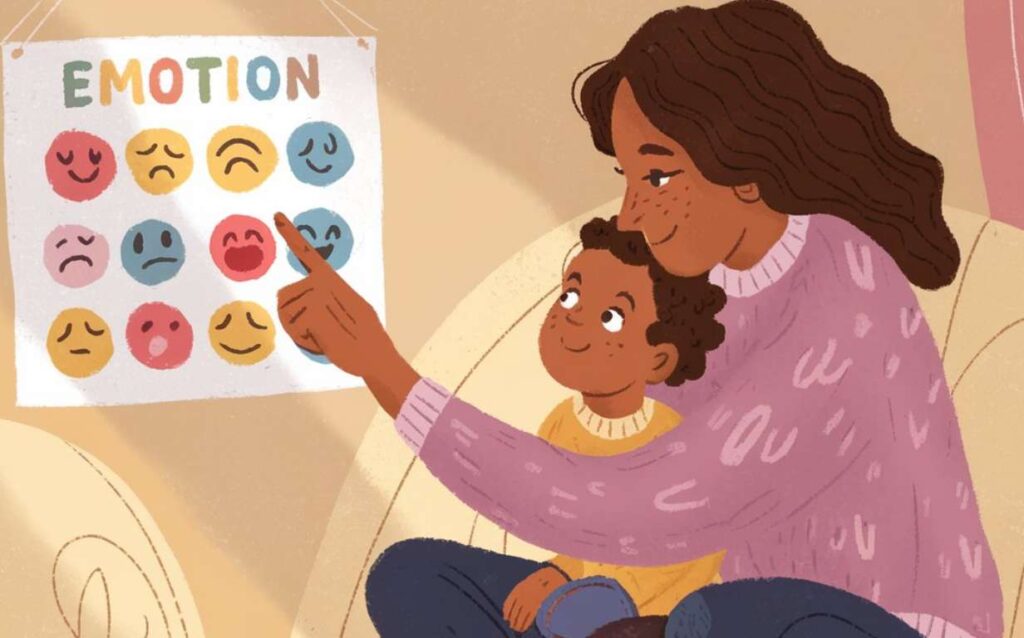In my journey as an educator, armed with a B.Ed (Hons) and a Master’s in Family Education, I have witnessed the significant role a parent’s education plays in a child’s overall growth. Education affects a parent’s ability to foster a rich environment for their children, influencing everything from cognitive skills to emotional health. I’ll share insights from my own experience as well as research-backed knowledge to help you understand why a parent’s education is a crucial factor in a child’s development.
key Takeaway
- Parents’ education fosters early cognitive and language skills, enhancing academic readiness.
- Educated parents often set high academic standards, promoting a positive view of learning.
- Children of educated parents benefit from better emotional regulation and social skills.
- Health habits, like nutrition and physical activity, are positively influenced by educated parents.
- Financial literacy and goal-setting are more likely emphasized, supporting long-term success.
In This Article
Cognitive and Academic Benefits of Educated Parents
1. Early Language Development and Literacy
In homes where parents have a strong educational background, language-rich environments are usually the norm. These parents often introduce their children to a variety of words and concepts at an early age, which can boost a child’s vocabulary, comprehension, and cognitive development.
Growing up, my parents placed immense value on reading. Bedtime stories weren’t just stories—they were bonding moments, learning moments, and, unknowingly to me at the time, formative experiences that shaped my cognitive development. Today, I carry on this tradition with my own children. As an educator, I understand that every time we read together, we’re not only bonding but also building a foundation of literacy and comprehension.

Research supports this practice, showing that children exposed to reading early in life tend to develop advanced language skills. Educated parents, by simply sharing stories or having conversations about daily events, create language-rich environments that foster mental agility and cognitive growth.
- Tip: Reading to children, even for 15 minutes a day, has a profound impact on their cognitive abilities and vocabulary. Try making this a daily routine, and choose books that engage and expand their understanding of the world.
2. Setting High Academic Standards
Educated parents often value and encourage academic achievement, setting expectations for their children’s performance in school. My parents always emphasized the importance of setting goals and striving to achieve them, which instilled a sense of purpose in my studies. As a parent myself, I now understand how those expectations shaped my perseverance and resilience.
Having high academic expectations doesn’t mean pressuring children—it’s about inspiring them to see education as a tool for growth. Children who grow up in environments where learning is celebrated are more likely to view schoolwork positively, feel motivated to achieve, and develop strong academic habits.
- Personal Insight: I encourage my children to explore subjects that excite them, and we set achievable goals together. This approach makes learning feel personal, enjoyable, and meaningful.
Social and Emotional Impact of Parental Education

Beyond academics, an educated parent often provides a nurturing environment that fosters a child’s social and emotional growth. This impact shapes a child’s sense of security, confidence, and relationship-building skills.
1. Emotional Regulation and Empathy
As a parent and educator, I’ve observed how essential it is to model emotional regulation. Educated parents, who may have developed emotional awareness and coping mechanisms through their education, often pass these skills on to their children. For instance, when my eldest child was going through a challenging phase, I taught them to express their feelings rather than suppressing them. We worked on acknowledging their emotions together, which strengthened our bond and taught them the valuable skill of self-expression.
Studies show that children who learn to process emotions in healthy ways develop better social skills and emotional resilience. Educated parents, equipped with knowledge or experience in emotional intelligence, are often better positioned to foster this environment.
- Tip for Parents: When a child feels frustrated, acknowledging their feelings—saying “I understand you’re upset”—can be powerful. Teaching them to label and work through emotions prepares them for healthier relationships and interactions as they grow.
2. Social Skills and Relationship Building
Another crucial aspect is the development of social skills. Educated parents tend to have well-rounded social interactions and can model positive communication and relationship-building techniques. From an early age, I encouraged my children to interact with peers, teaching them the basics of sharing, listening, and empathy. It’s amazing to see how these lessons from home translated into their friendships and teamwork skills at school.
Research indicates that children raised in homes that value education and communication are often better equipped to navigate social settings. They’re more likely to exhibit empathy, cooperate with others, and handle conflicts constructively—traits that support personal and professional success in adulthood.
- Real-Life Application: Encouraging children to communicate openly, listen actively, and show kindness can help them develop stronger social connections. These skills can be nurtured through family games, team sports, or even simple conversations at the dinner table.
Health and Well-being Benefits of Parental Education

Parents’ education levels also affect how they approach their children’s physical health and overall well-being, instilling habits that promote long-term health.
1. Nutritional Awareness and Healthy Eating
Having studied family education, I recognize how important it is to model healthy eating habits. My background has taught me to prioritize balanced meals, despite busy schedules. For instance, instead of opting for fast food when we’re pressed for time, I involve my children in making quick, healthy meals together. This way, they understand the importance of nutrition.
Educated parents are often more informed about health and nutrition, which leads to a greater likelihood of preparing nutritious meals and encouraging balanced diets. These early habits play a significant role in a child’s physical health, academic focus, and overall energy levels.
- Health Tip: Involve children in meal preparation, explaining the benefits of each ingredient. Making food a learning experience encourages them to make healthier choices and fosters an understanding of nutrition.
2. Physical Activity and Mental Health
Physical health goes hand-in-hand with mental well-being. In our family, we make it a priority to be active, whether it’s through weekend hikes or just a fun game of catch in the backyard. Exercise is not just for physical health; it boosts mental health, reduces stress, and enhances focus—benefits that I’ve seen firsthand in my children.
Educated parents, who understand the value of physical activity, are more likely to engage their children in sports, outdoor activities, or even family exercise routines. This not only promotes physical health but also equips children with a healthy outlet for stress and a foundation for mental resilience.
- Suggestion: Plan regular family activities that encourage movement, such as walking, biking, or dancing together. These moments become family bonding experiences that instill lifelong habits.
Long-Term Career and Economic Impact

Parents’ education influences children’s future financial stability and career paths, as it shapes their understanding of economic responsibility and long-term planning.
1. Instilling Financial Literacy
Growing up, my parents taught me budgeting basics, from managing my allowance to saving for larger purchases. These lessons were invaluable and are something I now pass on to my children. We have a “savings jar” where they put a portion of their pocket money, giving them an early understanding of saving and goal-setting.
Educated parents often understand the value of financial literacy and intentionally pass down knowledge that can lead to future financial security. Children raised in financially literate homes are more likely to develop responsible spending habits and avoid financial struggles in adulthood.
- Advice for Parents: Teach financial basics early, using tools like savings jars or apps that track spending. Helping children manage small amounts prepares them for financial independence.
2. Building Career Aspirations and Setting Goals
In my household, we discuss goals, dreams, and the steps needed to achieve them. My own education taught me that setting aspirations is powerful; it gives children a sense of purpose and direction. By showing my children that education can open doors, I hope to instill the same drive my parents gave me.
Research shows that children of educated parents are more likely to pursue higher education and set ambitious career goals. Educated parents often emphasize the importance of learning as a path to a fulfilling career, setting their children up for a successful future.
- Encouragement for Parents: Encourage your child’s interests, discuss future aspirations, and support them in setting achievable milestones. This guidance can help them visualize a meaningful career path.
Overcoming Educational Gaps as a Parent
Even parents who haven’t had the chance to pursue higher education can create an enriching environment for their children. Lifelong learning is a powerful message, and there are plenty of ways to encourage a growth mindset.
1. Embracing Community Resources
Libraries, online resources, and community programs can be incredibly valuable. Some of the most dedicated parents I’ve met didn’t have formal education, but they actively sought resources to enrich their children’s lives. Personally, I make use of libraries for family outings, which allow my children to explore new interests and ideas.
- Tip: Use community resources to encourage learning. Libraries, for example, often have books, activities, and events that make education accessible and enjoyable.
2. Showing a Passion for Learning
Education doesn’t stop after graduation. By showing a love for learning—whether through reading, experimenting with new hobbies, or simply being curious—parents can inspire their children to do the same. In my family, we often discuss topics we’re passionate about, creating a culture of exploration and learning.
Final Thoughts
In the end, a parent’s education plays an essential role in shaping their child’s life, but it’s the commitment to learning, the support, and the love that leave the most lasting impact. My journey as both a daughter and an educator has shown me that the influence of parents’ education extends far beyond grades and degrees. It shapes how we approach challenges, how we relate to others, and how we view the world.
Each small effort a parent makes to learn, teach, and grow sets an example for their children, creating a legacy of knowledge, resilience, and success.
